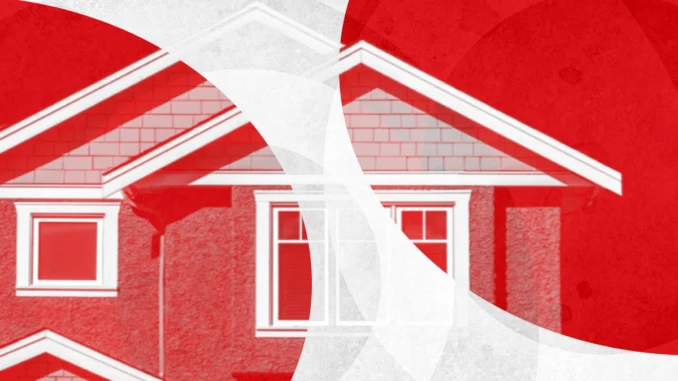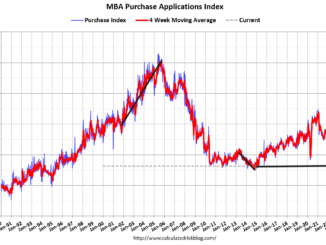
A paradoxical picture is emerging as the spring market is underway. On the one hand, elevated mortgage rates continue to erode buyers’ purchasing power, and in some markets, home prices are falling. On the other hand, inventory is still low, and homes are still selling fast, often with multiple offers.
All major housing market metrics point to a restrained housing market. The number of new listings coming on the market this spring is lower than it has been in more than a decade. Sales and new pending contracts are below pre-pandemic levels. Buyer interest has increased over the past few months, but showing activity is still much lower than it would be in a typical spring market.
But if you are a prospective buyer, macro housing metrics probably do not reflect your experience. On a transactional level, many buyers are experiencing a housing market that feels very competitive and they are having a hard time reconciling the news about the housing market with their experience trying to buy a home.
What can we expect in 2023?
It is always difficult to talk about the “national housing market” but this year, in particular, there will be wide variation in housing market conditions across the country. At the same time, there are some key trends I think will characterize the housing market in 2023.
1. Buyer disappointment. Home shoppers who are waiting to score a deal are going to be disappointed in 2023. Inventory has increased from a year ago but in most markets, it is still well below pre-pandemic levels. Home prices have come down in some places, but the price correction is relatively modest and prices are still typically 20% or 30% higher than they were three years ago.
Even though the pool of buyers is smaller than it was a year ago, there is still a lot of competition over relatively few homes. Bright MLS’ recent survey showed that sellers in the Mid-Atlantic received an average of 3.4 offers on homes sold in March and more than a third of homes sold for above asking price.
This article is part of our ongoing 2023 Housing Market Forecast series. After this series wraps, join us on May 30 for the next Housing Market Update Event. Bringing together some of the top economists and researchers in housing, the event will provide an in-depth look at the top predictions for this year, along with a roundtable discussion on how these insights apply to your business. To register, go here.
First-time buyers are having the hardest time, competing with higher-income buyers who are offering all-cash or who are able to roll equity for a home sale into a new home purchase. Unfortunately, 2023 is not going to bring much relief to those looking to become a homeowner for the first time.
2. Mortgage rate fatigue. To a certain extent, the presumption that the housing market will live or die with rates is misplaced. The Bright MLS survey found in its recent survey that 7 out of 10 recent homebuyers indicated that rates were not a factor in the decision to buy. Fifty percent of buyers said they were going to buy regardless of rates and about one in five bought with cash. Only 4% of buyers said they were buying now because they believed rates were going to go higher.
Homebuyers, particularly repeat and all-cash buyers, seem to have accepted current mortgage rates as the “new normal.” If mortgage rates rise to 8, 9, 10% or higher, the calculus for these buyers will change. But with rates in the 6 to 7% range this year, mortgage rates might not be as important as conventional wisdom suggests.
3. Selective sellers. New listings activity will continue to be very low throughout much of 2023. However, there are some categories of sellers that could have an impact in their local market.
Who is selling right now? Some people who bought homes in far-flung locations during the pandemic are selling as employers are calling people back into the office. Others who purchased second homes or investment properties during the last few years are looking to cash out amidst projections of a weaker housing market.
Data from Bright MLS’s survey indicated that more than a quarter of homes sold recently in the Mid-Atlantic were rental properties, vacation or second homes, or investment properties. Look for this segment to drive inventory growth in some markets.
4. Atypical seasonality. Home sales will rise throughout the spring and into the early summer, but 2023 will not have typical well-defined seasonal patterns. Economic uncertainty and constrained inventory will keep overall transactions below 2019 levels, and we will also have longer run-ups and wind-downs to the usually busy spring and fall housing markets.
The housing market remains in a period of transition, though sellers still have the advantage. The market will be more balanced in the second half of 2023, but look for a lot of variation across local areas.
This column does not necessarily reflect the opinion of HousingWire’s editorial department and its owners.
To contact the author responsible for this story:
Dr. Lisa Sturtevant at lisa.sturtevant@brightmls.com
To contact the editor responsible for this story:
Brena Nath at brena@hwmedia.com



